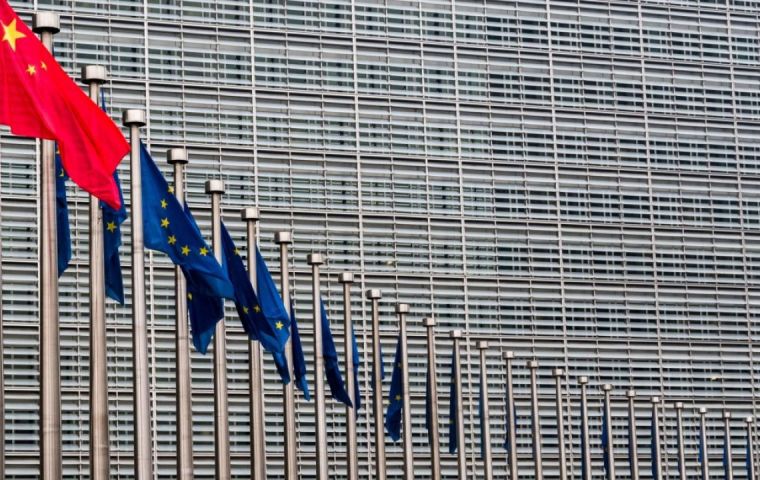MercoPress. South Atlantic News Agency
Brussels and Beijing agreement to open the Chinese market to EU investors
 The breakthrough in negotiations on an EU-China investment accord signals the bloc’s determination to focus on economic opportunities in Asia
The breakthrough in negotiations on an EU-China investment accord signals the bloc’s determination to focus on economic opportunities in Asia The European Union and China on Wednesday announced the political approval of a long-sought agreement to open the Chinese market further to EU investors, marking an economic victory for both sides.
The breakthrough in negotiations on an EU-China investment accord signals the bloc’s determination to focus on economic opportunities in Asia even amid criticism of Beijing’s record on human rights. The accord could take effect in early 2022, according to EU officials.
The deal, in the works since 2013, is also a salvo against the “America First” challenge to the multilateral order by US President Donald Trump. The EU has lambasted Mr Trump’s confrontational tactics toward China, urging engagement with Beijing in a bid to strengthen global rules.
“We are open for business but we are attached to reciprocity, level playing field & values,” European Commission President Ursula von der Leyen tweeted on Wednesday. “Today, the EU & China concluded in principle negotiations on an investment agreement.”
For the 27-nation EU, the pact expands access to the Chinese market for foreign investors in industries ranging from cars to telecommunications. It also tackles underlying Chinese policies deemed by Europe and the United States to be market-distorting: industrial subsidies, state control of enterprises and forced technology transfers.
For China, the accord bolsters its claim to be a mainstream geopolitical force and may limit risks resulting from a tougher EU stance on Chinese investments in Europe. It also strengthens Beijing’s long-standing call for the start of talks on a free-trade pact with the EU, which has insisted on an investment deal first.
China was the EU’s second-largest trade partner in 2019 (behind the US), with two-way goods commerce exceeding €1 billion a day.
Wednesday's announcement represents a high-level political blessing to the accord, which also covers environmental sustainability. Both sides plan to put the finishing touches on it over the coming months.
The accord will then need the approval of the European Parliament, where some voices have expressed objections as a result of alleged human rights violations in China. The deal includes Chinese pledges on labor standards meant to address such concerns, including in relation to ratification of related United Nations-backed conventions, according to EU officials, who asked not to be identified because of the continuing preparations.
“It’s not a given that the EU Parliament will give its consent,” Mr Reinhard Buetikofer, a German Green member of the assembly, said on Tuesday. “We’ll give it a tough scrutiny.”




Top Comments
Disclaimer & comment rulesCommenting for this story is now closed.
If you have a Facebook account, become a fan and comment on our Facebook Page!